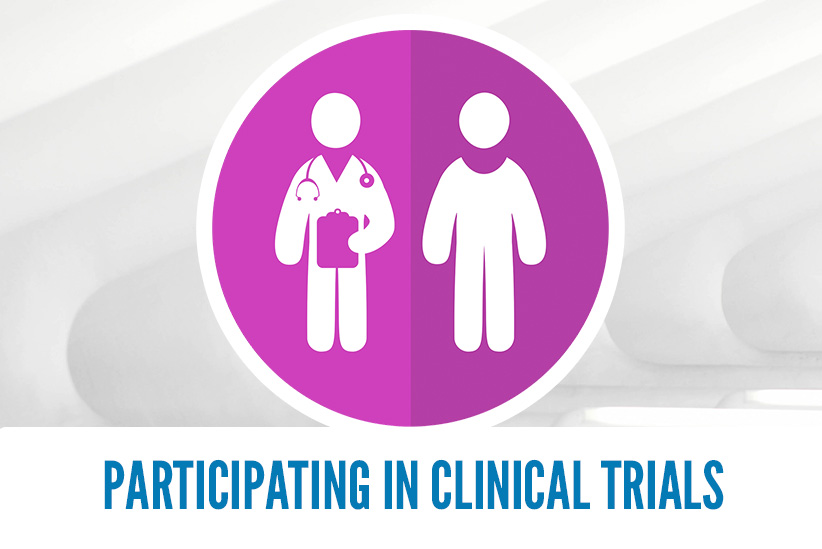What are Clinical Trials?
Clinical trials are research studies designed to find new or improved ways to prevent, diagnose or treat a health condition or disease (or their symptoms). While some types of research studies can be done in a lab or using an animal model, the term “clinical trials” refer to research studies done in humans.
There are several different types, or “phases” of clinical trials.
Phase I studies are conducted to determine if an innovative product or technology (being used for the first time) is safe for use in humans.
Phase II and III studies are completed to ensure that the same product or technology is efficacious (i.e., that is has a preventative, diagnostic or therapeutic benefit).
In some cases, a Phase IV (post-market) study is also conducted, either for marketing purposes or to gain additional product-specific data in support of the product’s intended use.

Some people are interested in participating in a clinical trial because they want to volunteer to help to develop new science and technologies. Other people have specific interest in a particular area of research, and want to contribute to its advancement. Regardless of the intent, volunteers are greatly appreciated in the clinical trials process, because without them, studies cannot be run!
What does it mean to be a participant in a clinical trial?
As a clinical trial participant, you are volunteering to undergo a new therapy or procedure, and/or consume a new health product, cosmetic, drug product or food.

We start a clinical trial by screening each participant to see if they are eligible to participate. Each clinical trial has set criteria that we use to refine the demographics of the participants in a study. This can be based on age, sex, sociodemographic variables, overall health status, or the presence or absence of a specific disease or condition.
Screening parameters vary on a per-study basis, but often include taking body measurements (i.e., weight, height), blood samples and/or urine samples, or completing questionnaires. Once we have verified that you are eligible to participate in our study, we would then enroll you for formal participation. The study procedures will again be explained to you for clarity.
What are the benefits of volunteering for a clinical trial?
As a clinical trial volunteer, you can take pride in knowing that you are helping to advance innovation in science and technology by supporting the research process.
Many studies will provide you with a copy of your individual results, so that you can learn new information about your health and wellness.
In addition, clinical trials often also provide a stipend as a way of saying thank-you for participating. This stipend comes from the study sponsor and is usually linked to the completion of the full study protocol.
What can you expect as a clinical trial participant with Source?
Source is a contract research organization, which means that we conduct clinical trials on behalf of companies wanting to do third-party research. We have no vested interest in the outcomes of the research that we conduct (other than wanting to see our clients succeed!)
The Source Team takes pride and care in ensuring that all clinical trial participants are treated with the utmost respect. We appreciate your time spent volunteering in our studies.
Clinical trial procedures are highly regulated by both Health Canada and by independent research ethics boards. These third parties conduct regulatory reviews of planned study procedures to ensure that clinical trial participants are treated in an ethical manner. They also review clinical study oversight to ensure that your data is kept confidential and not linked to you, directly. You can have confidence when volunteering for a clinical trial at Source that all procedures have undergone thorough review!

At Source, we have prioritized safe study procedures during the COVID-19 pandemic. We operate our studies in the Winnipeg area in a custom clinic designed with hospital-grade ventilation, and follow all current local health recommendations. Social distancing is adhered to wherever possible during study visits, and study staff and participants are equipped in adequate personal protective equipment (PPE) for study activities which require closer contact.
The safety of our Research Team and clinical study participants is our top priority!




